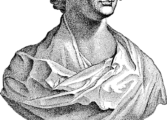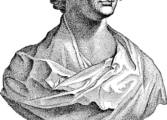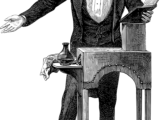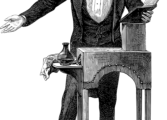Allan Edgar Poe: A Master of Mystery and Darkness

Introduction:
Allan Edgar Poe, commonly known as Edgar Allan Poe, was an American writer and poet who played a significant role in shaping the genres of horror, mystery, and detective fiction. Born on January 19, 1809, Poe’s works are celebrated for their dark and atmospheric themes, psychological depth, and intricate storytelling. This article delves into the life of Allan Edgar Poe, exploring his literary contributions, his impact on the genre, and the enduring legacy he has left behind.
Historical Development:

Allan Edgar Poe’s literary journey began in the early 19th century, during a time when Romanticism and Gothic fiction gained popularity. Poe’s writing style emerged from these influences, albeit with a distinctive flair that set him apart from his contemporaries.
During his short life, Poe experienced many tragedies and difficulties, which heavily influenced his writing. His works often draw on themes of death, loss, and the darker aspects of human nature. These themes permeate his most famous poems and short stories, such as “The Tell-Tale Heart,” “The Raven,” and “The Fall of the House of Usher.”
Poe’s contributions to the literary world were diverse and groundbreaking. He is hailed as the father of the modern detective story, with his detective character, C. Auguste Dupin, paving the way for later iconic detectives like Sherlock Holmes. Poe’s stories also laid the foundation for the development of the horror and science fiction genres.
Structuring the Text for Featured Snippet:
To increase the likelihood of being featured as a snippet in a Google search, the following bullet-pointed structure is employed:
1. Introduction – Allan Edgar Poe, a master of mystery and darkness.
2. Historical Development
– Poe’s emergence during the Romantic and Gothic literary movements.
– Influences on Poe’s writing style and themes.
3. Poe’s Impact and Contributions
– Pioneering the detective story genre with C. Auguste Dupin.
– Influence on later iconic detectives.
– Shaping the horror and science fiction genres.
4. Poe’s Works – Exploring the haunting poetry and mesmerizing short stories.
– “The Tell-Tale Heart” – A glimpse into the depths of madness.
– “The Raven” – A lyrical masterpiece of sorrow and loss.
– “The Fall of the House of Usher” – A psychological thriller that captivates.
– And many more remarkable works in Poe’s repertoire.
5. Poe’s Enduring Legacy and Cultural Impact
– Continual fascination with Poe’s stories and poems.
– Influence on subsequent generations of writers and filmmakers.
– The establishment of Poe as an iconic figure in American literature.
Conclusion:
Allan Edgar Poe’s contribution to literature cannot be overstated. His ability to craft tales of mystery, horror, and psychological depth has captivated readers for generations. Poe’s influence extends beyond his own time, shaping the development of various genres and leaving an indelible mark on the literary world. Through his storytelling, Poe tapped into universal fears and emotions, resonating with readers and ensuring his place as a master of mystery and darkness for centuries to come.
















































